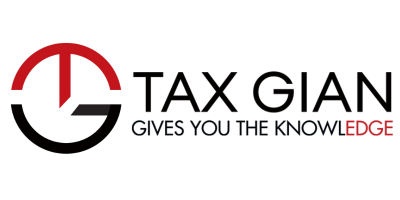Many small businesses in the UAE are struggling with one central question: what exactly counts as revenue under the Corporate Tax (CT) law? Mistakes in this area can cost them dearly, especially when applying for Small Business Relief (SBR).
Misunderstanding what to include as revenue may disqualify a business from relief and create future tax complications. This guide explains what should be included in revenue, what should not, and how to calculate it based on the UAE’s corporate tax rules for small businesses.
To better understand corporate tax implications on your business and to benefit from different tax initiatives, you can seek help from Tax Gian, an expert corporate tax agent in UAE.
Gross Revenue – The Starting Point
Under UAE CT Law, revenue is the total gross income a business earns during a tax period. This means before subtracting any costs, expenses, or deductions.
Revenue includes:
- Sales of goods or services
- Fees charged to clients or customers
- Contract income
- Royalties and commission
- Interest and investment returns (if related to the business)
- Other operating income
Important: Even if a business earns money from selling a fixed asset (like a company vehicle), that income must be included in the revenue figure.
Non-Revenue Items – What to Exclude
Not every cash inflow is counted as revenue. The following do not fall under revenue:
- Owner’s personal withdrawals
- Loan amounts received
- Capital contributions by the owner or shareholders
- Unrealised gains (like a property’s increasing value that hasn’t been sold)
- Money moved within related parties or companies (if not part of daily operations)
- Any income not linked to business activity
This distinction matters because only true business income impacts whether a company stays under the AED 3 million threshold for SBR. Corporate tax agents in Dubai can help you understand this even better.
The AED 3 Million Rule – Why It Matters
If your small business earns AED 3 million or less in gross revenue, you may qualify for Small Business Relief. This relief means your business is treated as if it made no taxable income, so you pay zero corporate tax for that period.
But there are two key points:
- Once you cross the AED 3 million mark in any tax year, you lose the SBR benefit forever, even if your revenue drops later.
- The threshold applies across all previous and current tax periods, and also at the group level if you’re part of a tax group.
This makes it critical to track all qualifying revenue carefully and avoid mistakes that could disqualify you.
Revenue vs. Profit – Don’t Mix Them Up
Revenue is not profit. Profit is what’s left after you subtract your expenses from your revenue. But when applying for SBR, only revenue is considered. Costs and profits are ignored during the eligibility check.
Let’s say your company earns:
- AED 1.5 million in sales
- AED 1 million in dividends
- AED 2 million in total expenses
Your revenue is AED 2.5 million, even though your profit is only AED 500,000. Because the revenue stays under AED 3 million, you’re still eligible for SBR. Take help from corporate tax agents in UAE to avoid any miscalculations.
Accounting Standards – How Revenue Is Calculated
Revenue must be calculated using accepted accounting standards. In the UAE, these are:
- IFRS (International Financial Reporting Standards)
- IFRS for SMEs (Small and Medium Enterprises)
- Or the cash basis of accounting, if the business earns AED 3 million or less
Small businesses can use simpler cash-based accounting if they stay under the revenue limit. But if a business chooses a method that looks unreasonable or inconsistent, the Federal Tax Authority (FTA) has the right to challenge it.
Special Cases – Other Types of Revenue
The law also says revenue includes other forms of income, even if not in cash. For example:
- Selling off parts of the business
- Swapping goods in a barter deal (the fair market value must be included)
If it’s income the business earned in the regular course of doing things or from one-off deals, it needs to be counted.
How can Tax Gian Help?
If your business is trying to benefit from Small Business Relief, don’t guess your revenue. Use the correct accounting methods, understand what to include, and double-check that you stay within the AED 3 million limit. Tax Gian can help you here as your best tax agent in Dubai, UAE. By helping you calculate your revenue using the correct accounting methods, our experts can save you from persistent loss, i.e., failing the small business relief forever. Consult our qualified experts today!



